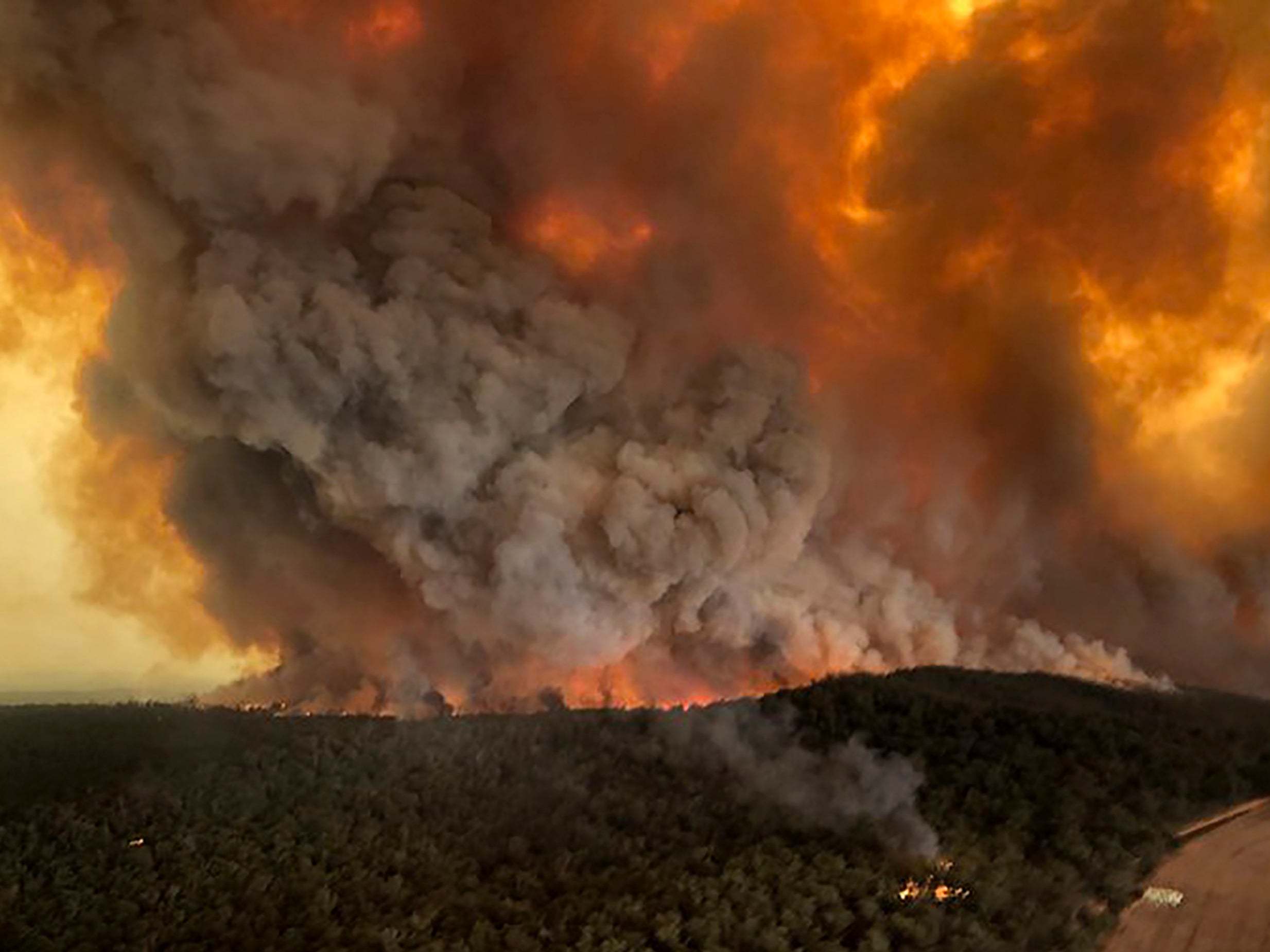2019 was second hottest year in Earth's recorded history, says EU's climate monitoring service
Scientists say climate change findings are ‘unquestionably alarming’

Last year was Earth’s second hottest year on record, with the decade as a whole the warmest in history, the European Union’s climate monitoring service has said.
Data released by the Copernicus Climate Change Service (C3S) found that the average temperature in 2019 was only a few hundredths of a degree below the record 2016 level.
In Europe specifically, 2019 was the hottest year on record, the EU‘s climate service said. Within the decade, Copernicus also found that the five last years were the hottest on record for the planet.
“These are unquestionably alarming signs,” Copernicus director Jean-Noel Thepaut said.
Global temperatures in 2019 were 0.6 Celsius hotter than the average in 1981-2010. Additionally the last five years were 1.1C-1.2C warmer than the pre-industrial era.
“2019 has been another exceptionally warm year, in fact the second warmest globally in our dataset, with many of the individual months breaking records,” said Carlo Buontempo, head of C3S.
2016’s temperatures were boosted by a once-in-a-century strength El Nino, but despite this 2019 was just 0.04C cooler, suggesting a continued rising underlying trend.
The service also found that atmospheric carbon concentrations that drive higher temperatures continued to rise in 2019, reaching their highest levels on record across the planet.
Scientists at the United Nations have said that manmade greenhouse gas emissions need to be cut by 7.6 per cent each year until 2030 to limit temperature rises to 1.5C – a path current pledges do not match.
While global warming of 1.5C will still have significant negative effects, the effects are less pronounced than if warming reached 2.0C. Intergovernmental Panel on Climate Change (IPCC) says.

Human activities are estimated to have already caused 1.0C warming, with 1.5C likely to be hit between 2030 and 2052 if human activities continue at the current rate. The UK government policy is currently to achieve net zero carbon emissions by 2050.
The IPCC says the difference between 1.5C and 2.0C warming will reduce the risk of catastrophic droughts, extinction, sea level rises, and that “climate-related risks to health, livelihoods, food security, water supply, human security, and economic growth” would be less extreme.
Crucially, scientist say that the changes that will still be needed to cope with 1.5C warming will be less extreme than at 2.0C warming and that people will have more time to implement them.
While climatologists are wary of linking specific weather events to climate change, 2020 began with a series of natural disasters that appear to be linked to hotter temperatures, such as wildfires in Australia and deadly flooding in Indonesia. Similar catastrophes are expected to become even more frequent as global temperatures rise.
The European Commission’s new president Ursula von der Leyen has made a Green Deal her flagship policy, with the aim of taking the European Union to net zero emissions by 2050. She has described climate change as an “existential threat”.
Join our commenting forum
Join thought-provoking conversations, follow other Independent readers and see their replies
Comments
Bookmark popover
Removed from bookmarks